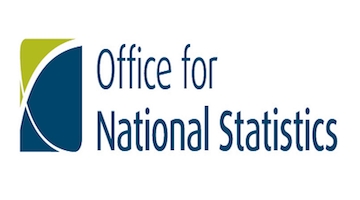Inflation has jumped to the highest level in nearly two years.
The Office for National Statistics revealed this morning that The Consumer Prices Index rose by 1.0% in the year to September 2016, compared with a 0.6% rise in the year to August.
The rate in September 2016 was the highest since November 2014, when it was also 1.0%.
CPIH (not a National Statistic) rose by 1.2% in the year to September 2016, up from 0.9% in August.
Mike Prestwood, head of inflation at the ONS, said: “CPI inflation has risen to its highest for nearly two years, though it remains low by historic standards.
“The prices paid by manufacturers for raw materials were unchanged over the month and there is no explicit evidence the lower pound is pushing up the prices of everyday consumer goods.
“ONS will continue to monitor 180,000 prices across the country for signs of devaluation having a wider economic impact than seen so far.”
The ONS report stated: “This is the highest 12-month rate since November 2014, when it was also 1.0%. At this point, the rate had begun to fall, remaining at or around zero for much of 2015 before gradually picking up from the end of the year.
“The largest downward pull on inflation in September 2016 and for 2016 to date comes from prices for food and non-alcoholic beverages. Upward pressures come from a variety of categories, most notably restaurant and hotel bills.
“Transport prices provided a downward pressure during 2015 and early 2016 but this has eased during 2016 and they now have an upward effect.”
Joanne Livingstone, principal at Punter Southall, said the CPI and RPI figures - 1% for the former and 2% for the latter - were "significant as they will determine the amount of increase applied for many pensioners next year".
She said: "They also highlight the marked difference between RPI and CPI with the former being consistently higher due in large part to the construction of the two indices. The Government has largely changed its reference inflation index to CPI for its own pension purposes although it continues to need to honour and indeed choose to issues more RPI based gilts.
"Whether or not schemes can make a similar switch in respect of past occupational scheme promises is largely an accident of the wording used to set up the scheme in the first place though. We estimate that it might make approximately £100bn difference to pension liabilities across Britain’s DB schemes."
Shilen Shah, bond strategist at Investec Wealth & Investment, said: “The September inflation print is a confirmation that the long period of low inflation is over, with year-on-year CPI increasing to 1% from 0.6% in August. The combination of higher input prices -rising 7.2% in September and a higher oil price is likely to put some upward pressure on future inflation prints in the coming months.
"Governor Carney’s comments last week are however a confirmation that the BoE will not react to the data, as it continues to view the currency’s fall as a shock absorber to the uncertainty created by the Brexit vote.”
Russ Mould, investment director at AJ Bell, said: “From an investment perspective, history shows that a bit of inflation is not a bad thing for stock markets and certainly better than deflation or stagflation. However, if too much inflation causes the Bank of England to raise interest rates or drives Government bond yields higher then investors could be lured away from stocks and back toward cash or bonds, removing some of the support given to share prices by the premium yield that is currently available from equities.”
He said: “Marmitegate was the sign of things to come as the cost of imported goods and raw materials from abroad increases due to the weak pound and this could lead to further price rises over the coming months.
“This would have a real impact on the spending power of people’s salaries and could be the first time they have felt any pain from the vote to leave the EU.
“Too much inflation could also encourage the Bank of England to raise interest rates so consumers would be hit by a double whammy of rising prices and higher borrowing costs."

